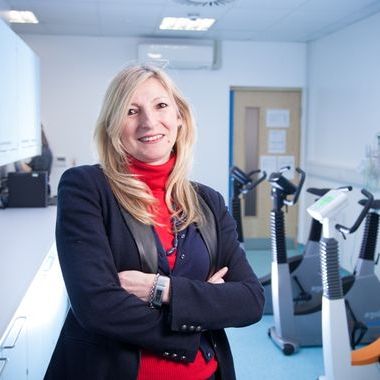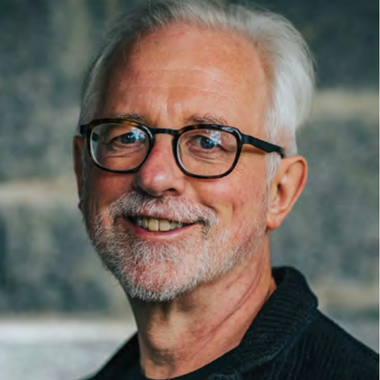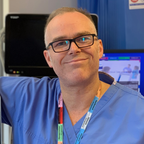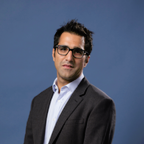This session dives into the evolving landscape of perioperative medicine for critically ill patients, starting with the latest data on high-risk surgical populations. We’ll explore how frailty shapes outcomes and why early mobilisation, continuous health status monitoring, and meaningful goal-setting must underpin care planning. Such goals are more than "code status": they should guide care planning to attain individualised, targeted outcomes. Attention then turns to optimising outcomes in elective surgery through smart, scalable prehabilitation—who benefits, how to deliver it, and when to intervene. Finally, we tackle emergency surgical care, focusing on practical strategies to drive improvement in emergency laparotomies. Featuring leading voices in frailty, prehabilitation, and perioperative surgical research, this session offers vital insights for anyone managing the surgical-critical care interface.
Learning objectives
1. Understand the latest epidemiological trends and risk factors affecting high-risk perioperative patients in the critical care setting.
2. Evaluate the impact of frailty on perioperative outcomes and recognise strategies such as early mobilisation and individualised goal-setting.
3. Explore current evidence and best practices in the implementation of prehabilitation for elective surgical patients.
4. Identify key quality improvement approaches to enhance care and outcomes in emergency surgical cases, particularly emergency laparotomy.
Chairperson Justin Kirk-Bayley
Shaman Jhanji
TBC – Setting the scene for perioperative patients and future directions
Ken Rockwood
Frailty in the perioperative period: why so much of it? What can we do?
Sandy Jack
TBC - Prehabilitation: who, how and when?
Deena Harji
TBC – Can we improve outcomes in emergency laparotomies?
×
Dr Justin Kirk-Bayley
Consultant Intensivist & Anaesthetist and National FUSIC® Lung Lead, UK
Justin Kirk-Bayley is a Consultant Intensivist & Anaesthetist at Royal Surrey NHS Trust in Guildford, UK where he has been Clinical Lead for ICU, and is now Deputy Medical Director. His clinical passion is for pragmatic delivery of point of care ultrasound, having run a training fellowship for over a decade and being a part of the ICS’s FUSIC committee. He has published and teaches ultrasound around the world. As his Trust’s Professional Director for Therapeutics, he is committed to medication safety and optimisation, lecturing internationally about improvement in medication process and has helped found the Turning the Tide group to improve the UK’s use of intravenous fluids. (@Turningthe_Tide)
:
@PARADicmSHIFT
×

Professor Sandy Jack
Professor of Prehabilitation Medicine in the Faculty of Medicine, University of Southampton
Sandy Jack is a Professor of Prehabilitation Medicine in the Faculty of Medicine at University of Southampton, and Honorary Consultant Clinician Scientist in Perioperative Medicine at University Hospital Southampton NHS Foundation Trust (UHS). She has> 15 years’ experience in prehabilitation medicine and is considered a national/international leader in her field. She was the first to show that cancer treatments decreased physical fitness, leading to poor outcomes and high–intensity exercise-training reversed/ameliorated the decline and improved tumour regression outcomes. She has a global perspective of the challenges and works with international partners to address these.
Sandy is Co-Director of Fit-4-Consortium and Director of Centre for Human Integrative Physiology in the NIHR Research Facility. She is a Board member on numerous Societies. She is CI on several trials, including the NHSE&I Sustainability and Transformation Partnership Cancer Transformation funded multi-centre Wessex Fit-Cancer Surgery Trial-WesFit (http://www.wesfit.org.uk), which is evaluating multimodal prehabilitation in patients undergoing major intra-cavity cancer surgery in the community settings. In response to the pandemic, she transformed WesFit into SafeFit (http://www.SafeFit.nhs.uk) utilising virtual clinics to deliver multimodal interventions. She has co-authored over 28 publications and co- investigator on >£5.3 million in research grants. Her team have been awarded 15 prizes including the Health Service Journal Cancer Care Initiative of the Year award for WesFit. She has recently been appointed as the theme lead for Prehabilitation for our £25,000,000 NIHR Southampton Biomedical Research Centre and she is Co-Lead of the UHS Prehabilitation Medicine Clinical Service.
×

Professor Kenneth Rockwood
Professor of Geriatric Medicine , Dalhousie University & Nova Scotia Health
Kenneth Rockwood is Professor of Medicine (Division of Geriatric Medicine and Neurology) and Clinical Research Professor of Frailty and Aging at Dalhousie University and an active staff physician. A native of Newfoundland, he received his MD from Memorial University, and completed training in Internal Medicine at the University of Alberta and in Geriatric Medicine at Dalhousie University.
He is a leading authority on frailty, Professor Rockwood has more than 600 peer-reviewed publications and nine books to his credit. His original definition of frailty, The Rockwood Clinical Frailty Scale (CFS), first described in 2005 as a semiquantitative tool used to estimate an individual’s degree of frailty on a scale of 1 to 9, is used extensively across the world. Ken has many collaborations internationally, including work on younger people with frailty in the UK, a deprescribing clinical trial, an intergenerational dementia prevention trial, and a large multi centre study of frailty, all in Australia. He is also working with Cape Breton University on healthy aging and dementia prevention.
×
Deena Harji
Consultant Colorectal Surgeon, Manchester University NHS Foundation Trust
Deena Harji is a Consultant Colorectal Surgeon at Manchester University NHS Foundation Trust and an Associate Professor at the University of Leeds. She is a NIHR Advanced Fellow. Her work focuses on improving post-operative outcomes in emergency laparotomy through the development of complex interventions and robust trial evaluation. She has led a portfolio of NIHR-funded surgical trials in the emergency setting
×
Dr Shaman Jhanji
Consultant in Anaesthetics and Intensive Care Medicine , The Royal Marsden and a Reader at the Institute of Cancer Research, London
Dr Shaman Jhanji is a Consultant in Anaesthetics and Intensive Care Medicine at The Royal Marsden and a Reader at the Institute of Cancer Research, London.
He qualified from Birmingham University Medical School and subsequently undertook postgraduate training in general medicine, anaesthetics and intensive care medicine in London. He was awarded a PhD from the University of London following research into microvascular abnormalities associated with major surgery and critical illness undertaken at the William Harvey Research Institute.
Dr Jhanji’s current research interests relate to the care of the perioperative patient on intensive care and the impact of the perioperative period on cancer biology.









